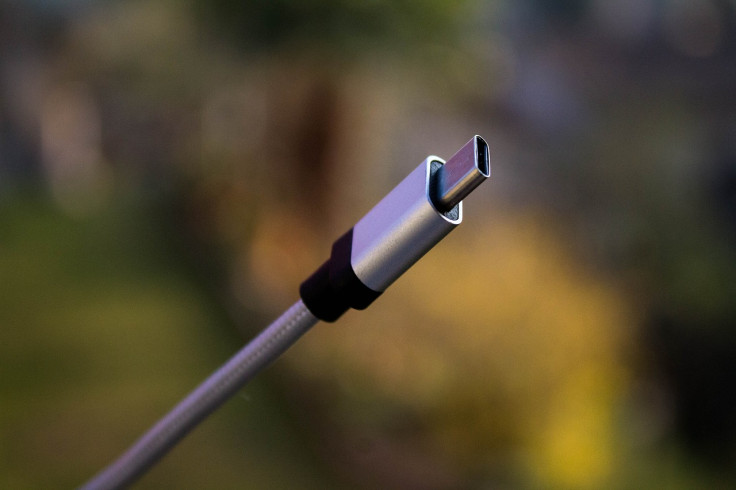Apple's rumoured Made for iPhone push could break EU rules
Apple is reportedly planning to implement the Made for iPhone certification process for accessories with USB-C ports and end up breaking EU law.

Apple unveiled the iPhone 14 series at its Far Out 2022 event. The rumour mill is already churning out speculations surrounding the next iPhone models. The American tech giant is still mum on the long-rumoured iPhone 15 series' release date, price, and other key details. Still, some reports claim the next-gen iPhones will go official in the fall.
Despite the lack of an official confirmation, the iPhone 15 line has been subject to many leaks lately. According to popular Apple analyst Ming-Chi Kuo, Apple plans to use a new LiDAR sensor on the next-gen iPhones. Likewise, reliable tipster ShrimpApplePro recently indicated that the 2023 iPhones would have the same display sizes as their predecessors.
While nothing is set in stone yet, past leaks suggest the upcoming iPhone 15 series will comprise the base iPhone 15, iPhone 15 Plus, iPhone 15 Pro, and iPhone 15 Pro Max (aka iPhone 15 Ultra). The Cupertino-based tech behemoth is likely to further widen the gap between the Pro and non-Pro iPhone models this year. In other words, the Pro models could boast a few exclusive features.
Also, the word on the street is that the iPhone 15 and iPhone 15 Pro will oust the Lightning port in favour of a more commonly used USB-C port to comply with a new EU law. To those unaware, the aforesaid EU law requires manufacturers to have a USB-C open standard for their products. Apple reportedly plans to use the MFi (Made For iPhone) certification process on USB-C accessories.
This will enable the company to make a tiered system for accessories and cables. Apple has been using a tiny circuit in its devices that allow MFi accessories to charge and transfer data effectively. To recap, Apple started using this circuit in 2012. As a result, products that aren't certified or from a third party do not work with iPhones.
According to a report by Laptopmag.com, EU lawmakers aren't likely to accept Apple's approach. As per the EU research dossier, the maximum power should indicate the amount of power a radio device requires to maintain operation and the power required to reach the maximum charging speed.
Is #Apple breaking the #Law? "Made for Apple" on #USBC could be #illegal under new #EU rules https://t.co/jyquEE9S0H
— Fernando Cassia 💚🧡🇺🇦💉💉💉💉 (@fcassia) March 12, 2023
The EU directive states that radio devices, including mobile phones that can be recharged via wired charging, must adopt the USB Power Delivery charging communication protocol. This protocol should be incorporated by radio devices with USB Type-C receptacles requiring charging at voltages above 5 volts, powers over 15 watts, or currents above 3 amperes.
In October, the EU explained in a press release that "harmonising" fast charging technology will discourage various producers from unjustifiably restricting the charging speed. Furthermore, it will ensure that the charging speed doesn't change when using a different compatible charger for a device. So, if Apple brings an MFi to USB-C accessories, it will be seen as breaking the law, despite complying by replacing the Lightning port with a USB-C on the iPhone.
Apple could limit non-MFi cables to charging the iPhone 15 Pro at 15W. The MFi-accredited cables, on the other hand, could charge the handset up to 27W, which is also the charging speed for the iPhone 14. However, this would mean Apple refuses to acknowledge the rule about unjustifiably limiting charging speed noted in the research dossier.
The iPhone 15 series will only support USB-C accessories certified by Apple through the Made for iPhone (MFi) program 😬
— mihai_tuță (@mihai_tuta) March 4, 2023
Non-certified cables will have limited data and charging speeds
Source: @VNchocoTaco pic.twitter.com/6taeYiLvYj
Likewise, Apple could restrict the data transfer on the USB-C iPhone 15 since it is not mentioned in the legislation. Regardless, the company would still break the law since the move will likely hinder consumers rather than help them. Apple could claim uncertified USB-C cables could damage the user or the iPhone. As a result, many consumers will probably pay a little extra for an MFi cable.
It is worth mentioning here that the company did not use an authenticator chip in the iPad or MacBook series when it transitioned to USB-C. However, these products do not generate as much revenue as the iPhones. It is still unclear how Apple plans to handle this change.
© Copyright IBTimes 2025. All rights reserved.






















